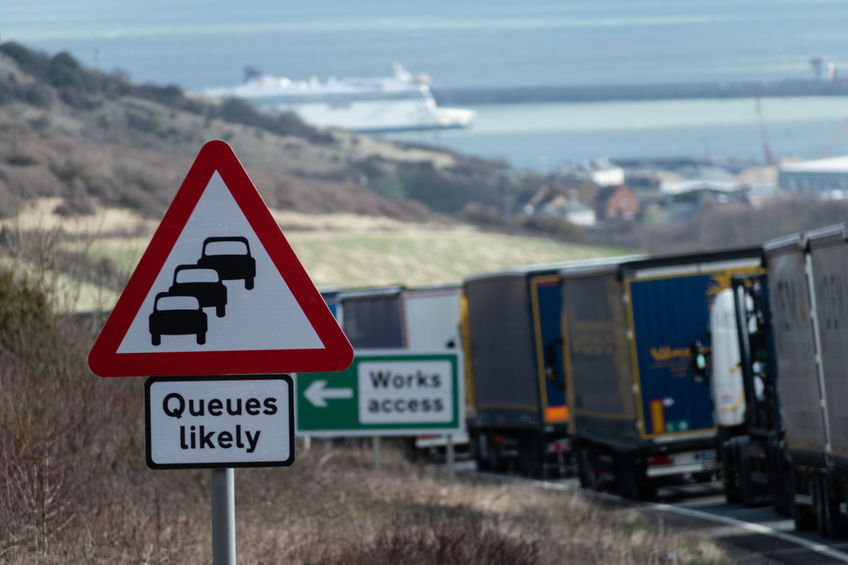Farm groups scramble to understand impacts of UK border closure

Industry groups are scrambling to understand what the implications are for farmers after France closed its borders to the UK for 48 hours to stop the spread of a new strain of Covid-19.
Lorry drivers have been told not to travel to ports in Kent, East Sussex and Hampshire after the French government's shock announcement on Sunday 20 December.
The move, in place following the discovery of a highly infectious new strain of Covid-19 in south east England, means no lorries or ferries are able to sail from ports for at least 48 hours, resulting in huge queues in Dover.
Much of the trade passing through the Channel ports consists of perishable goods, such as fresh fruit and vegetables.
However, speaking to BBC Radio 4 on Monday, Transport Secretary Grant Shapps confirmed that goods were still moving, as 'most freight was not accompanied'.
"The shops are well stocked. In the short term this is not an issue in terms of supply but we are very keen to get it resolved," he said.
The NFU said it was currently 'working hard to understand what the implications are, if any, on UK farming businesses'.
The union's head of food and farming, Philip Hambling said: “We are working to understand immediate implications of the temporary border restrictions between the UK and France on Britain’s farmers, and how this may impact their businesses.
"We remain in close contact with our partners across the supply chain. where we are reassured that stores are well-stocked and there is plenty of fresh, seasonal British food available.
“It’s crucial this situation is resolved as soon as possible as there will be perishable produce expected to travel to and from the EU in the coming days."
Fears have been raised that the border closure will affect a number of processors and exporters who had planned for a last push to get UK meat over to the continent before the end of the year.
"The ‘cliff edge’ to have been brought forward by 10 days due to Covid-related closures is unexpected and frustrating," said Phil Stocker, National Sheep Association (NSA) chief executive.
"The entire sheep sector has responded to calls to prepare for Brexit, and has been acutely aware of the probability of disruption to exports in the first weeks of 2021."
He said while export markets were highly important to the UK sheep sector, it also showed the importance of investing in the domestic market: "Whenever disruption occurs its our domestic market we rely on."
Red meat industry body Quality Meat Scotland (QMS) added that it would be keeping daily contact with businesses to monitor the situation.
It highlighted that businesses across the red meat supply chain 'relied upon quick, convenient access to sea border crossings to and from UK ports'.
“They are prepared to do their part in complying with any new checks and procedures to ensure Scotch produce held at Dover can be enjoyed over the festive period," QMS chief executive, Alan Clarke said.
"What they need in return is for government to find a resolution regarding freight coming into and out of the UK during the pandemic."








